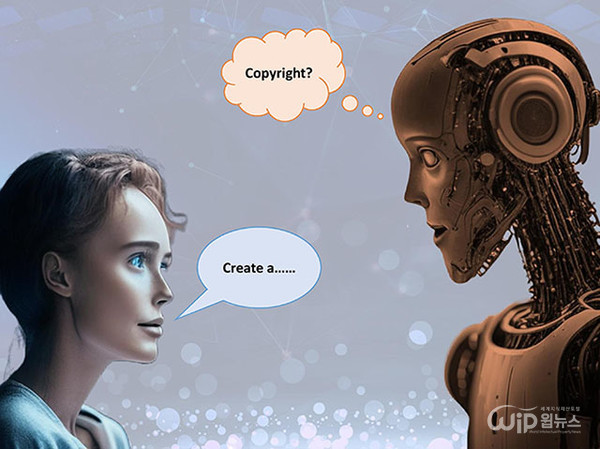What is AI? Can AI Own Copyright?
The Definition of Artificial Intelligence and Copyright Law

The rapid advancement of artificial intelligence (AI) technology is bringing significant changes to the traditional copyright paradigm. This development has sparked debates about the role of human creativity prompting researchers around the world to closely examine the impact of AI on copyright law.
As AI-based algorithms generate an increasing amount of creative content issues surrounding copyright ownership and originality have become more complex. The question of whether to grant copyright to AI-generated content affects creators users and copyright holders alike. It also raises questions about how the core principle of human creativity and involvement in copyright law may evolve.
The term artificial intelligence was first used at the 1956 Dartmouth Conference aiming to simulate human intelligence in machines. Currently there is no clear legal definition of AI but it is described as a machines ability to perform tasks that would require intelligence if carried out by a human.
AI refers to the capacity of computers to perform cognitive functions such as problem-solving decision-making and natural language processing evolving into highly sophisticated models that learn and improve from data over time.
Moreover the increasing spread of AI-generated content presents new challenges for copyright law. Questions about whether AI-generated works can be copyrighted have arisen along with concerns about temporary reproductions of copyrighted materials fair use and derivative works when using AI tools.
The origins of copyright law trace back to the Renaissance era with the invention of the printing press. The first recorded grant of copyright in 1557 in England was primarily used as a tool for censorship. The modern concept of copyright emerged in the 18th century and the Statute of Anne (1710) was the first copyright law to focus on the rights of authors.
This law protected the expression of works stating that copyright does not last indefinitely and granting copyright holders exclusive rights to reproduce distribute and modify their works.
In the 20th century copyright law expanded to accommodate new technologies from sound recordings to digital media with legislation such as the U.S. Digital Millennium Copyright Act (DMCA) addressing the challenges posed by the internet. AI became an official scientific field in the mid-20th century with early research focusing on symbolic methods and rule-based systems.
AI challenges the core principles of copyright law in several ways. Traditionally copyright protects original works that are the result of human creativity but AI-generated content blurs the line between derivative and original creation as it draws on patterns from existing works.
The traditional copyright system centers on human authorship making it difficult to determine who the author is when content is generated by AI—whether it should be attributed to the AI itself the programmer the user or the AIs owner.
Copyright law generally requires works to be fixed in a tangible medium but AI can generate dynamic content that evolves over time. Additionally moral rights which protect the personal and reputational interests of creators become ambiguous when applied to AI which lacks intention and emotion.
The integration of AI into creative fields presents numerous challenges for modern copyright law which traditionally assumes that copyright protection applies exclusively to human artists. As works are developed without direct human input the application of copyright and authorship becomes increasingly complex.
The ease with which AI can replicate and remix content presents unprecedented challenges for law enforcement highlighting the need to reconsider the scope of fair use and derivative works. Furthermore the potential for different governments to regulate AI and copyright differently raises concerns about a lack of consistency across jurisdictions.
Laws must evolve to address AIs creative abilities ensuring that the rights of all participants in the creative process are equally protected while fostering innovation. It is essential to support the development of AI tools that can detect potential copyright infringements in AI-generated outputs.
Legal practitioners need to be educated on the capabilities and impacts of AI with regular workshops lectures and seminars keeping them informed. Beyond legal issues ethical considerations are also crucial in the context of AI and copyright as regulations must promote fairness transparency and respect for creators.
The age of AI presents both challenges and opportunities for copyright law. The convergence of AI and copyright law is reshaping traditional legal paradigms underscoring the need for a modern copyright framework that can accommodate AI’s unique characteristics. In the future the intersection of AI and copyright will become even more intertwined.
AI has the potential to strengthen copyright enforcement streamline licensing processes and enhance the freedom of content creation. Maintaining a harmonious balance between the protection and promotion of intellectual property rights will be key as AI and copyright continue to converge.
Source: Bukhari Syed Wajdan Rafay & Hassan Saifullah. (2024). Impact Of Artificial Intelligence on Copyright Law: Challenges and Prospects. 5. 647-656. 10.52279/jlss.05.04.647656.
Website: : http://www.wip-news.com/news/articleView.html?idxno=24967
